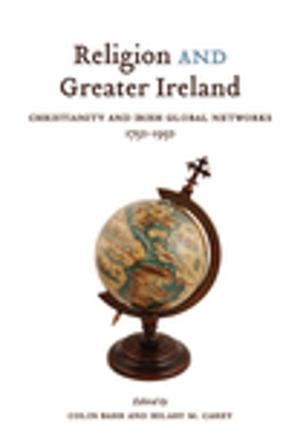Second Thoughts
Investor State Arbitration between Developed Democracies
Nonfiction, Social & Cultural Studies, Political Science| Author: | ISBN: | 9781928096399 | |
| Publisher: | MQUP | Publication: | January 30, 2017 |
| Imprint: | CIGI | Language: | English |
| Author: | |
| ISBN: | 9781928096399 |
| Publisher: | MQUP |
| Publication: | January 30, 2017 |
| Imprint: | CIGI |
| Language: | English |
Criticism. Doubts. Second thoughts. Although investor-state arbitration (ISA) has been included in investment agreements between developed and developing countries since the 1960s, and provided foreign investors with a kind of private justice against developing world host states, it became increasingly controversial in developed countries when it was included in NAFTA in 1993, creating the possibility of ISA claims between and against two developed countries (the United States or Canada), as well as claims against and by a developing state (Mexico). A few years later, the OECD’s attempt to finalize the Multilateral Agreement on Investment was stymied by concerted civil society protest and opposition to ISA, and in recent years each new proposed agreement has sparked fresh rounds of protest. What engenders the controversy about ISA? While ISA’s advantage is that it prevents escalation of international conflict by relieving states from feeling obliged to espouse claims of injured investors against foreign governments, it is criticized for creating regulatory chill whereby states are reluctant to make necessary public policy reforms for fear that changes to the investment environment will lead to expensive investor claims. Are fears of litigation and expensive payouts well founded? Can key modifications to the ISA system, such as those added to the Comprehensive Economic and Trade Agreement satisfy critics and redeem this system of private justice? Is ISA really necessary between developed democracies where an independent and professional judiciary can generally be trusted to decide without fear or favour? In Second Thoughts: Investor-State Arbitration between Developed Democracies, 16 international investment legal experts have undertaken in-depth analyses of ISA’s economic, political, and social impacts when included in agreements between developed democracies. This timely volume appears at a critical moment, seeking answers to the crucial questions that will determine the next generation of international investment agreements.
Criticism. Doubts. Second thoughts. Although investor-state arbitration (ISA) has been included in investment agreements between developed and developing countries since the 1960s, and provided foreign investors with a kind of private justice against developing world host states, it became increasingly controversial in developed countries when it was included in NAFTA in 1993, creating the possibility of ISA claims between and against two developed countries (the United States or Canada), as well as claims against and by a developing state (Mexico). A few years later, the OECD’s attempt to finalize the Multilateral Agreement on Investment was stymied by concerted civil society protest and opposition to ISA, and in recent years each new proposed agreement has sparked fresh rounds of protest. What engenders the controversy about ISA? While ISA’s advantage is that it prevents escalation of international conflict by relieving states from feeling obliged to espouse claims of injured investors against foreign governments, it is criticized for creating regulatory chill whereby states are reluctant to make necessary public policy reforms for fear that changes to the investment environment will lead to expensive investor claims. Are fears of litigation and expensive payouts well founded? Can key modifications to the ISA system, such as those added to the Comprehensive Economic and Trade Agreement satisfy critics and redeem this system of private justice? Is ISA really necessary between developed democracies where an independent and professional judiciary can generally be trusted to decide without fear or favour? In Second Thoughts: Investor-State Arbitration between Developed Democracies, 16 international investment legal experts have undertaken in-depth analyses of ISA’s economic, political, and social impacts when included in agreements between developed democracies. This timely volume appears at a critical moment, seeking answers to the crucial questions that will determine the next generation of international investment agreements.















